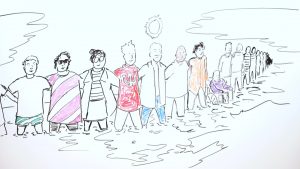Context and Course Information
3 Chalk Talks
Julie Marie Frye; Sarah Hare; and Beth Lewis Samuelson
One aspect of the assignment redesign included an instructional strategy we called “chalk talks.” Chalk talks are educational videos where an instructor explains a concept verbally while a sketch presents information visually.
A number of years ago, Julie Marie Frye viewed RSA Animate’s “Changing Educational Paradigms” and was moved by Sir Ken Robinson’s content as well as the impeccably sequenced visual representation of knowledge through words and marker drawings.
In 2015, Frye met Whitby School’s Design Teacher, Phil Lohmeyer who was creating similar representations of knowledge with elementary-aged children. Lohmeyer’s work convinced Frye that chalk talks not only played a vital place in education and community development, but were a realistic possibility with local talent.
As Hare, Samuelson, and Frye began discussing the assignment redesign, Frye saw an opportunity to create and utilize chalk talks to flip the role of the librarian from talking head to information consultant and thought facilitator.
As a result of the Teaching with Technology grant, we were able to hire two talented artists, cartoonist Tadeusz Sadowski and videographer Scott Whitworth, to create the chalk talks as a jumping on place for in-depth conversations and consultations about complex topics like authority and information privilege.
We see one strength of the chalk talks is that learners receive information through multimodal means: the drawings provide visual information and often feature metaphors; the soundtrack provides a mini-lecture that is synced to the visuals; and closed captioned text of the video content ensure equitable access for more learners. As we originally theorized, learners not only participated in thoughtful online conversations about the chalk talk content, the videos served as a jumping on place for consultations with their librarians. A few learners even adopted the terminology as a way to discuss their own information process or needs.
We continue to analyze course outputs and chalk talk viewing/drop off data to determine the strengths and opportunities of the instructional strategy and these particular chalk talks in online, hybrid, and face-to-face contexts.
Chalk Talks
Altogether, we created 7 chalk talks to prompt students to reflect on their role as an information creators. Each chalk talk is linked below. The link includes a full transcript, which can be downloaded as a text file.
The first three chalk talks centered on authorities and the lineage of scholarly ideas. These chalk talks helped students question established authorities in their field.
Chalk Talk #1: Credibility of Scholars
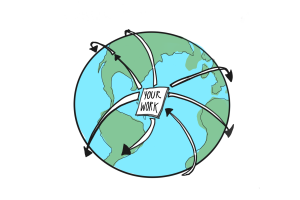
Chalk Talk #2: Acknowledging Authorities
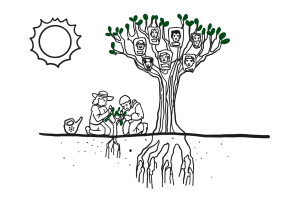
Chalk Talk #3: Challenging Authorities
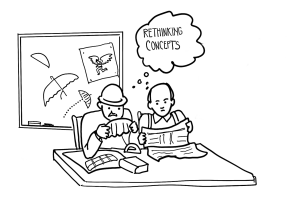
The final four chalk talks built upon the foundation explored in the first three chalk talks by discussing key considerations for information creators, including licensing and intellectual property, recognizing others’ lack of access to information, and considerations for ethical and intentional sharing.
Chalk Talk #4: Your Intellectual Property
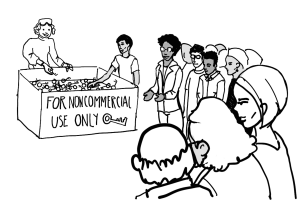
Chalk Talk #5: Journals in Higher Education
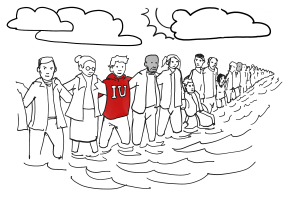
Chalk Talk #6: Inequities in the Ecosystem
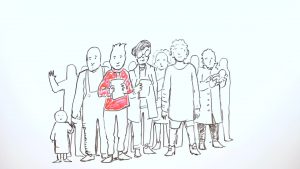
Chalk Talk #7: Transforming the Information Ecosystem
